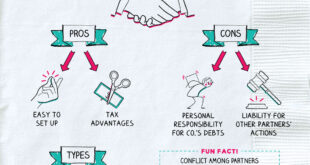When two companies wish to do business with each other, a contract specifies the activities entered into by both organizations and the terms through which they will each fulfill their parts of the agreement. Contracts affect business profitability in a very large way due to the emphasis on revenue and expenses.
Contract management is the process of managing contract creation, execution, and analysis to maximize operational and financial performance at an organization, all while reducing financial risk. Organizations encounter an ever-increasing amount of pressure to reduce costs and improve company performance.
Contract management is more than just the process of managing agreements made with customers, vendors, partners, or employees. It’s also an opportunity to save time, increase revenue, and extract insights. Contract management proves to be a very time-consuming element of business, which facilitates the need for an effective and automated contract management system.
There are many types of contracts used in business, like Non-Disclosure Agreements (NDAs), vendor agreements, order forms, Master Service Agreements (MSAs), Statements of Work (SOWs), and many more.
When a contract is phrased poorly, one organization might lose countless thousands of dollars over a simple technicality they lacked the resources to identify. Effective contract management can ultimately create a powerful business relationship and pave the road to greater profitability over the long term, but only when managed correctly.
The precise wording of contracts is crucial to contract management. It’s a good idea to include a legal department or a lawyer in contract management discussions. While in-house legal counsel usually reviews or approves contracts, they’re necessary for every other department in the business, too, from procurement and finance to HR, sales, and marketing.
When a contract management strategy is successfully implemented, organizations can expect to see:
- The expected business benefits and financial returns are being realized.
- The supplier is cooperative and responsive to the organization’s needs.
- The organization encounters no contract disputes or surprises.
- The delivery of services is satisfactory to both parties.
Negotiating Skills
In many industries the balance of power has dramatically shifted from buyers to suppliers. In some cases suppliers have eliminated their competitors by driving down costs or developing disruptive technologies. Companies that have gotten into a weak position with suppliers need to approach the situation strategically. They can no longer rely on hard negotiations through their procurement offices.
The quickest and least expensive way to redress a power imbalance is to offer the supplier a market opportunity that is too good to pass up in exchange for price concessions. If a company is well placed to help a supplier reduce its price risks, it can demand some concessions in return, for example entering into a multi-year contract with the supplier, advise Petros Paranikas and others in HBR.
Another strategy is to consolidate the various business units that are independently purchasing components from a large supplier. Small companies that don’t order through multiple units can form purchase consortiums with other firms in their industry. At other times the right strategy is to pick apart your existing bundles; this may enable you to create competition among suppliers where none previously existed. The third way to alter demand is to shift volume away from a powerful supplier, ideally by switching to a substitute or lower-cost product.
Government Contracts
The government is turning to the private sector now more than ever to fulfill its mission, and at the same time, government contractors must deftly navigate a complex network of rules and regulations in order to secure new contracts and effectively administer their engagements.
The business of government is complex, highly demanding, and the direction of many projects can change without so much as a moment’s notice – effective government contract management can help ensure projects stay on track.
Contract management is a multi-disciplined process that encompasses technical, business, and
procurement perspectives. The Contract Management Plan (CMP) is critical to effective program execution in the areas of risk management, performance-based incentives, quality assurance, and changing mission priorities. Good planning builds effective partnerships, establishes open communications, sets clear expectations, defines roles and responsibilities, and sets the framework for DOE mission success.
Contract management occurs after contract award and involves those activities performed by the
entire Contract Management Team (CMT) in managing the contract, and overseeing contractor performance to ultimately achieve the Government’s objectives. The CMT includes project/program managers, technical, legal, contracting and financial officials, and federal safeguards and security directors
The proper and timely performance will be of the utmost importance, as government agencies and entities will not tolerate any lapses or delays. Obviously, all contracts should be handled in a professional manner, but the consequences of breaching a government contract can be even more dire than is the case with other types of contracts.
The U.S. government regulations and processes enable it to procure goods and services at “fair and reasonable” prices. For companies to successfully do business with the U.S. government, they must establish and maintain consistent financial structures to support cost/price proposals and execute their contracts pursuant to contractual terms. In general, the U.S. government has the rights to audit bidders’ proposals and compliance with the requirements in certain types of acquisitions.
Understand Your Abilities and Limitations
Before entering into a contract with the local, state, or federal government, a company must first ensure that it truly has the capability to meet the outlined requirements. Depending on the scope and complexity of the agency’s demands, some companies simply may not have the resources or personnel to perform adequately and punctually. In light of the importance of maintaining a good relationship with government entities, it would be unwise to take on more than the company can really handle.
Learn and Abide by the Many Rules
One of the trickiest aspects of engaging in government contracting is that there are often quite a few stringent rules and regulations governing the arrangement. These rules usually entail fairly strict compliance mandates, which cannot be taken lightly. Thus, in addition to examining your company’s own strengths and potential shortcomings, it is critical to ensure a full understanding of the legal constraints that will be at play. In many cases, it is a good idea to run some of the more nuanced aspects by legal counsel to ensure there is sufficient understanding and preparation.
Never Miss a Deadline
As mentioned, government agencies will not tolerate delays or disruptions to the contracting process. There could clearly be financial ramifications in the event of a breach, such as fines or penalties. But, there is also a good chance that the contract will be rescinded at the time of the mishap or perhaps not renewed for another cycle. And, if either scenario happens, it is quite likely that a company will have a hard time winning another government contract down the line.
Maintain Good Working Relationships
Good contract management ultimately comes down to cultivating relationships. Many government agencies must contend with tight budgets and limited resources, which can make achieving their objectives rather difficult. A company that is able to deliver high quality goods and services and has the capacity to do so in a way that reduces the burden on the government agency will be highly valued.
Use the Right Technology
Given the complexity of many government contracts and the need to stay on top of deadlines and minor details, having the right contract management system in place will prove vital. These days, virtually every step of the contract lifecycle can be automated with the right contract management solution. As a result, by using the right software, there will be no excuse for missed deadlines, late payments, or lapses in communication.
Developing a Project Tracker is a Must
In most cases, a simple spreadsheet will suffice. Be sure to include fields for a unique ID number for each task assigned to your contractor with a title, brief description, due date, delivery date and status. This will be helpful for you to stay organized and on track but also to report out progress during monthly and annual contract performance reviews
Beware of Scope Creep
We’ve all heard this before, but scope creep is very real and can sometimes occur without being noticed. Scope creep happens when the COR or project manager tasks the contractor with work that is outside the original scope of the contract, statement of work (SOW), or performance work statement (PWS). It’s essentially asking them to do extra work they weren’t initially brought on to do.
If you see or suspect scope creep, reach out to your CO for advice. If the extra work is deemed necessary, you can work with your contracting office to draft a modification (MOD). Having a strong understanding of the SOW or PWS specifics will help you to quickly identify any issues and head off any potentiality of scope creep before it happens.
Always Review Invoices for Accuracy
Most contractors are well intentioned, but it’s important to catch simple things such as the submission of a duplicate invoice or incorrectly listed period of performance. With competing priorities, it’s tempting to just sign and submit an invoice to get it out of the way but that can land you in hot water.
Good Recordkeeping is Paramount
Having complete, detailed records of all communications and transactions between the contractor, designated project manager and contracting officer’s representative (COR) is not just a legal requirement for federal entities – these records can also potentially serve as your first line of defense should you be identified for an audit or formal investigation. Remember, emails are considered official records and should also be treated as such. File them away in a safe location before deleting them from your inbox.
Always Be Prepared for an Audit
Remember, you can be audited at any time and your records as a COR may be requested for review. As long as you’ve faithfully and ethically executed your duties, kept detailed, accurate records of all communications, invoices, and work completed – you have nothing to worry about.
What is Government Furnished Property (GFP)?
Government furnished property is property that is furnished to a contractor for performance of a Government (DoD) contract. There are two types of Government Furnished Property:
- Equipment
- Material
Government Furnished Equipment (GFE)
Government Furnished Equipment (GFE) (FAR Part 45) is equipment that is owned by the government and delivered to or made available to a contractor. GFE is normally specified in a Request for Proposal (RFP) or contract. The determination of GFE is usually made by the government Program Manager (PM) and Contracting Officer.
The Government’s official GFE policy is stated in Federal Acquisition Regulation (FAR) section 45.102 “Policy” which states:
- Contractors are ordinarily required to furnish all property necessary to perform Government contracts.
- Contracting officers shall provide property to contractors only when it is clearly demonstrated:
- To be in the Government’s best interest;
- That the overall benefit to the acquisition significantly outweighs the increased cost of administration, including ultimate property disposal;
- That providing the property does not substantially increase the Government’s assumption of risk; and
- Government requirements cannot otherwise be met.
- The contractor’s inability or unwillingness to supply its own resources is not a sufficient reason for the furnishing or acquisition of property.
- “Exception”. The property provided to contractors for repair or overhaul is not subject to the requirements of the paragraph of bullet #2 above in this section.
Types of Government Furnished Equipment (GFE)
The types of GFE that are available :
- GFAE: Government-Furnished Aeronautical Equipment
- GFE: Government-Furnished Equipment
- GFF: Government-Furnished Facilities
- GFI: Government-Furnished Information
- GFM: Government-Furnished Material
- GFP: Government-Furnished Property
- GFS: Government-Furnished Software
What is Government Furnished Material (GFM)?
Government furnished material (GFM) is another form of Government-owned property that is sometimes provided to contractors. Raw titanium for use in ship construction, nuts, bolts, washers, screws, and other consumable items are all examples of GFM. Material does not include equipment, special tooling, and special test equipment.
Unlike GFE, GFM is consumed or expended by the contractor during the performance of a contract. The cost of GFM is included in the cost of the contract end-item to be delivered.
Contractors establish and maintain records of GFM in accordance with FAR requirements
References and Resources also include
https://www.contractworks.com/blog/5-contract-management-best-practices-for-government-contracts
https://acqnotes.com/acqnote/careerfields/government-furnished-equipment-gfe
https://hbr.org/2015/07/how-to-negotiate-with-powerful-suppliers
https://www.businessnewsdaily.com/4813-contract-management.html
 International Defense Security & Technology Your trusted Source for News, Research and Analysis
International Defense Security & Technology Your trusted Source for News, Research and Analysis


